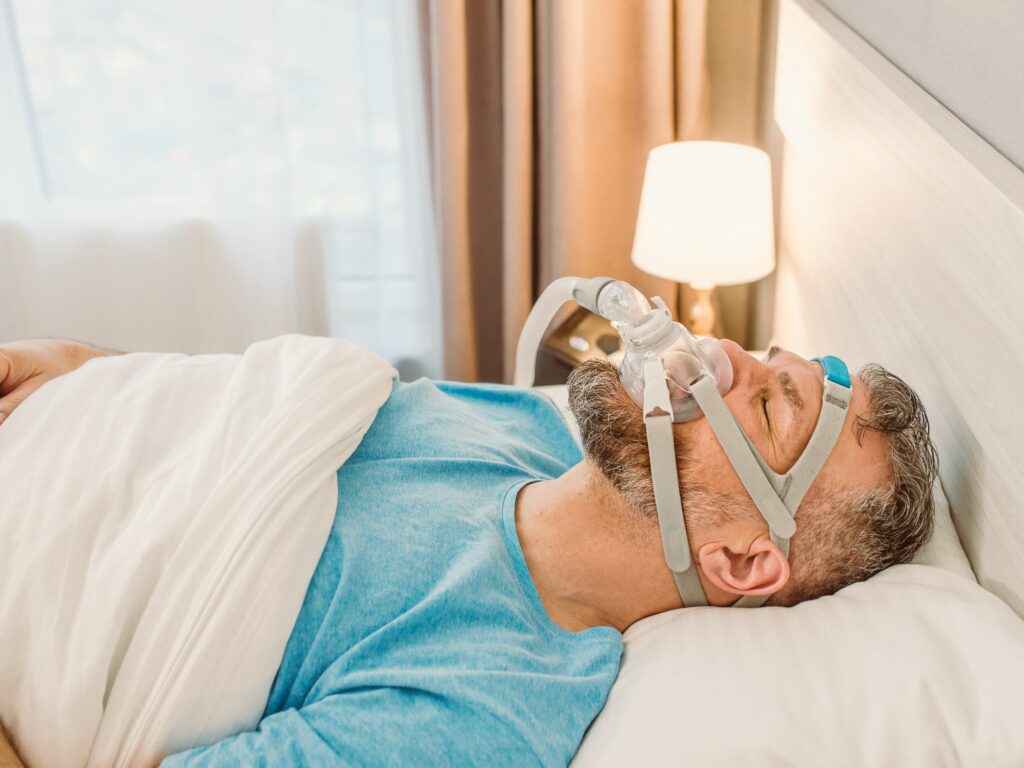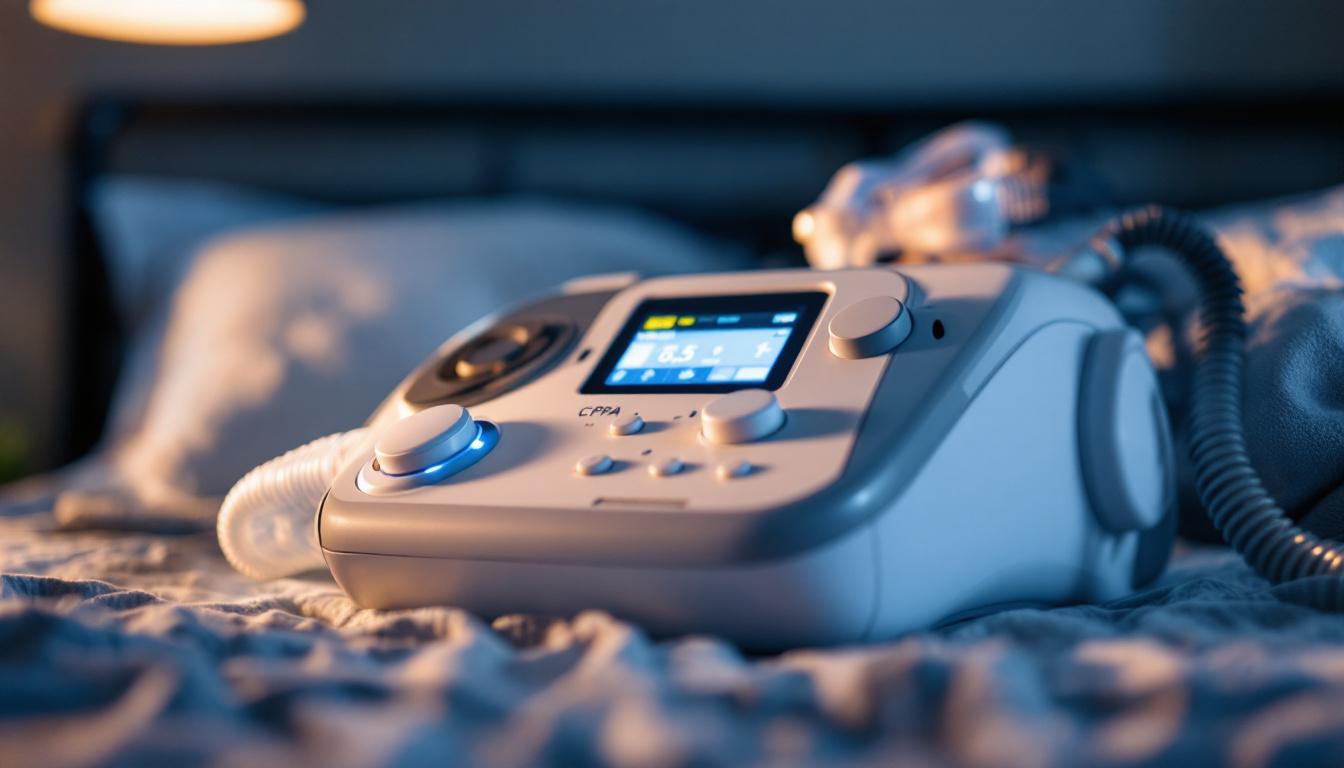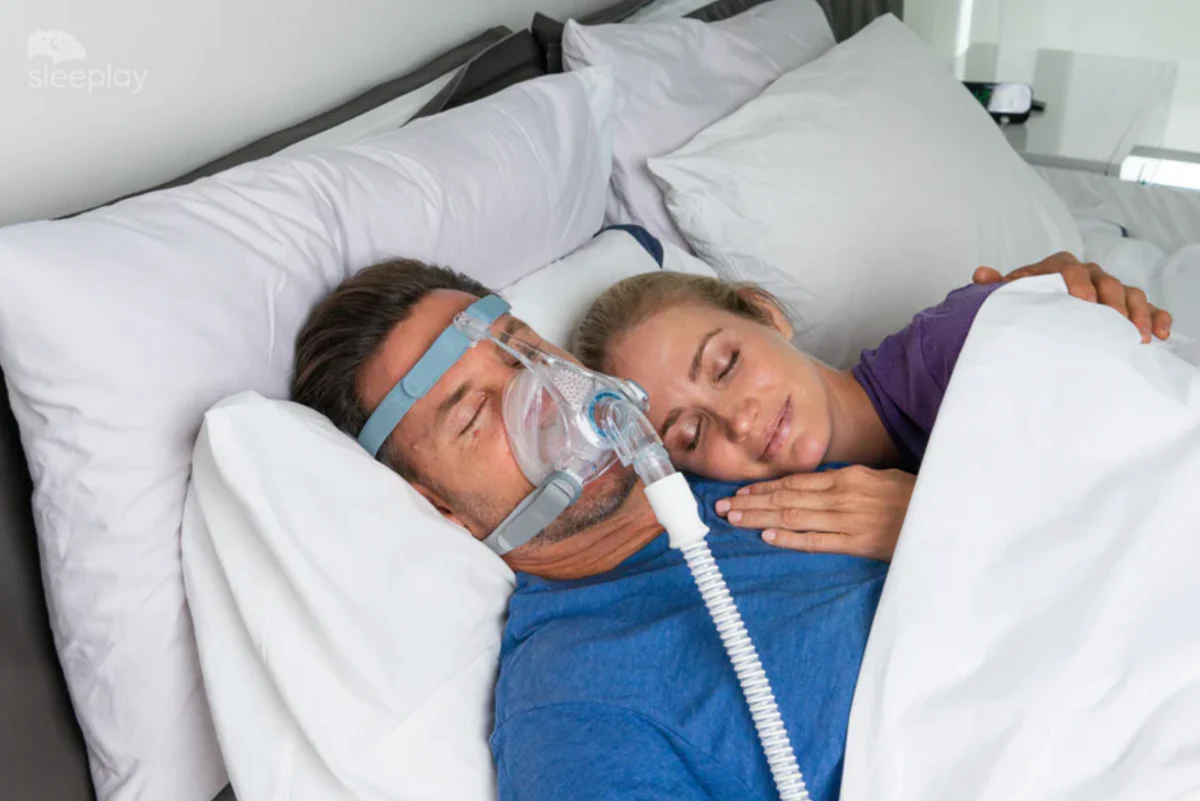Continuous Positive Airway Pressure (CPAP) machines have become essential for individuals suffering from sleep apnoea and other respiratory conditions. These devices help maintain an open airway during sleep, thereby improving overall health and quality of life. However, with a plethora of options available on the market, selecting the right CPAP machine can be a daunting task. This article aims to guide you through the process of choosing the best CPAP machine tailored to your specific needs.
Understanding CPAP Machines
What is a CPAP Machine?
A CPAP machine is a device that delivers a steady stream of air through a mask to keep the airways open while you sleep. It is primarily used to treat obstructive sleep apnoea (OSA), a condition characterised by repeated interruptions in breathing during sleep. By ensuring a constant airflow, CPAP machines prevent the airway from collapsing, thereby facilitating uninterrupted sleep. This not only improves the quality of sleep but also significantly enhances overall health, reducing the risk of complications such as cardiovascular disease and daytime fatigue.

Choosing the best CPAP machine for your needs involves careful consideration of various factors, including pressure settings, comfort, usability, and budget. By understanding the different types of machines available and consulting with healthcare professionals, you can make an informed decision that will enhance your sleep quality and overall health. Remember, the right CPAP machine can make a significant difference in managing sleep apnoea and improving your quality of life.
Moreover, the use of a CPAP machine can lead to a marked improvement in the quality of life for individuals suffering from sleep apnoea. Many users report feeling more alert and energetic during the day, which can positively impact productivity and mood. The consistent use of CPAP therapy can also help mitigate other health issues related to poor sleep, such as high blood pressure and diabetes, making it a vital tool in the management of sleep-related disorders.
Types of CPAP Machines
There are several types of CPAP machines available, each designed to cater to different needs. The most common types include:
- Standard CPAP: Delivers a constant pressure throughout the night.
- Auto-CPAP: Automatically adjusts the pressure based on your breathing patterns.
- Bilevel Positive Airway Pressure (BiPAP): Offers two levels of pressure—one for inhalation and a lower one for exhalation.
Understanding these types will help you determine which machine may be most suitable for your condition and lifestyle. Additionally, some CPAP machines come equipped with advanced features such as humidifiers, which add moisture to the air, making it more comfortable to breathe, especially for those who experience dryness in their nasal passages or throat. Others may include built-in data tracking capabilities, allowing users and healthcare providers to monitor usage patterns and adjust settings for optimal therapy effectiveness.
It is also worth noting that the choice of mask can significantly influence the effectiveness of CPAP therapy. Masks come in various styles, including nasal masks, full-face masks, and nasal pillows, each designed to accommodate different sleeping positions and personal preferences. Finding the right mask is essential, as comfort and fit can greatly affect compliance with CPAP therapy, ultimately determining its success in treating sleep apnoea.
Read more at: Buy CPAP Machines Online What You Should Know
Key Features to Consider
Pressure Settings
One of the most critical features of a CPAP machine is its pressure settings. The pressure required can vary significantly from person to person. It is essential to consult with a healthcare professional to determine the appropriate pressure level for your needs. Many modern machines come equipped with auto-adjusting capabilities, which can be beneficial for those who experience fluctuations in their breathing patterns throughout the night. These auto-adjusting machines, often referred to as APAP (Automatic Positive Airway Pressure) devices, continuously monitor your breathing and adjust the pressure accordingly, ensuring optimal comfort and effectiveness throughout the night. This feature not only enhances the user experience but also contributes to better compliance with therapy, as patients are less likely to feel discomfort from fixed pressure settings.

Noise Level
The noise level of a CPAP machine can significantly impact your sleep quality. Many users prefer quieter models to avoid disturbances during the night. Look for machines that are specifically designed to operate quietly, often measured in decibels (dB). Generally, a noise level below 30 dB is considered acceptable for a good night’s sleep. Additionally, some manufacturers incorporate advanced sound-dampening technologies and design features that further reduce operational noise, making them suitable for shared sleeping environments. Users should also consider the type of mask used, as certain masks can create additional noise due to airflow, so selecting a compatible mask designed for quiet operation can enhance the overall experience. Read more about environments at https://www.slu.edu/medicine/about/faculty-resources/cedar/posts/clinical-learning-environment.php
Portability
For those who travel frequently, portability is an essential feature to consider. Some CPAP machines are compact and lightweight, making them easy to pack and carry. Additionally, consider whether the machine is compatible with international power supplies and whether it has a battery backup option for use in locations without electricity. Many portable models also come with travel cases, which not only protect the device but also provide convenient storage for accessories like hoses and masks. Furthermore, some machines are designed to operate on a variety of power sources, including USB or car adapters, making them ideal for camping trips or long journeys. This versatility ensures that users can maintain their therapy routine regardless of their location, promoting better health and well-being while on the go.
Comfort and Usability
Mask Options
The type of mask you choose can significantly affect your comfort and adherence to therapy. CPAP masks come in various styles, including nasal masks, full-face masks, and nasal pillows. Each type has its advantages and disadvantages, depending on your sleeping position, facial structure, and personal preference. It is advisable to try different masks to find the one that fits comfortably and securely.
Humidification
Many CPAP machines feature built-in humidifiers to add moisture to the air, which can alleviate dryness in the throat and nasal passages. This feature is particularly beneficial for those who live in dry climates or who experience nasal congestion. When selecting a machine, consider whether a heated humidifier is included or if it can be purchased separately.
Ease of Use
Look for a CPAP machine that is user-friendly, with intuitive controls and clear display screens. Some models offer smartphone connectivity, allowing users to track their usage and receive feedback on their therapy. This feature can help you stay motivated and engaged in your treatment plan.
Budget Considerations
Initial Costs
The price of CPAP machines can vary widely, depending on the features and technology included. Basic models may start at a few hundred dollars, while advanced machines with additional features can cost significantly more. It is essential to consider your budget and whether your health insurance will cover any of the costs associated with purchasing a CPAP machine.
Ongoing Expenses
In addition to the initial purchase price, there are ongoing costs to consider, such as replacement masks, filters, and tubing. These components need to be replaced regularly to ensure optimal performance and hygiene. It is advisable to factor these ongoing expenses into your overall budget when selecting a CPAP machine.
Consulting Healthcare Professionals
Importance of Professional Guidance
Before making a decision on which CPAP machine to purchase, it is crucial to consult with a healthcare professional. A sleep specialist can provide valuable insights into your specific condition and recommend the most appropriate machine based on your medical history and sleep study results. They can also assist in determining the correct pressure settings and mask type.
Follow-Up Care
Regular follow-up appointments with a healthcare provider are essential for monitoring your progress and making any necessary adjustments to your therapy. This ongoing support can help ensure that you are using your CPAP machine effectively and comfortably.
Trial and Adjustment Period
Getting Used to the CPAP Machine
Many users experience an adjustment period when first starting CPAP therapy. It is not uncommon to feel uncomfortable or even claustrophobic when wearing a mask. To ease this transition, it may be helpful to gradually increase the amount of time spent using the machine each night. Start with short periods and gradually extend the duration as you become more accustomed to the sensation. Click here to find more about claustrophobic.
Monitoring Your Progress
Keep track of your sleep patterns and how you feel during the day. Many modern CPAP machines come with built-in data tracking features that can provide insights into your usage and overall effectiveness of the therapy. Sharing this information with your healthcare provider can help them make informed decisions regarding your treatment plan.
Conclusion
Investing time and effort into selecting the right CPAP machine is crucial for achieving successful treatment outcomes. With the right device and support, restful nights and revitalised days are well within reach.

